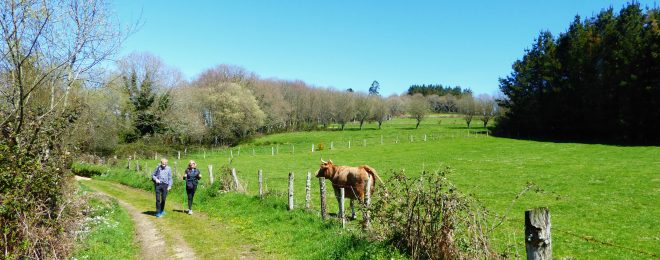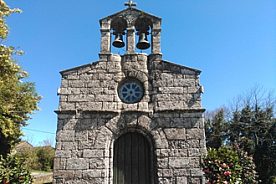Our grading system explained
Spain

Gorgeous Mediterranean weather, delicious cuisine, and beautiful scenery just made for walking make Spain more than just a package holiday destination.
Show me:
1 Holiday
- Experience the tranquillity of the Camino del Norte in rural Northern Spain
- Arrive at Santiago de Compostela - the culmination of 7 days and 160km of walking
- Receive a Compostela Certificate when you successfully complete your pilgrimage
- Stay at the exquisite Pazo Santa Maria country house and the stylish Parador de Vilalba
- Visit magnificent medieval monasteries and cathedrals en route
- 1
Introduction
With its golden beaches, endless sunshine, high-rise resorts and bargain deals, Spain has long been considered the prime destination for package holidays in Europe. But, travel beyond the well-known tourist hot spots and you’ll find a country full of fascinating cultural diversity, enticing Mediterranean cuisine and stunningly beautiful landscapes just crying out to be explored on foot.
Comprising 17 distinct regions, Spain is a country of enormous regional diversity. Borne out of ancient historical, political and social divides, modern-day Spain reflects the traditions and identities of its past. No more so than in Galicia in the northwest corner of the country and the Canary Islands – an archipelago off the coast of northwest Africa.
Galicia An officially autonomous region, Galicia has its own distinctive culture, cuisine and language with over half of the population speaking Galician as their first language. Galicia’s landscape is characterised by its long coastline – 1660 km in total – rolling hills and large swathes of rural farmland. Its primary draw for visitors is the city of Santiago de Compostela, an attractive, vibrant city with pedestrianised streets, large plazas and impressive Baroque, Gothic and Romanesque architecture. Central to the city is the imposing cathedral that has been welcoming pilgrims en masse for centuries. There are a number of pilgrimage routes to Santiago of which the Northern Way, the Camino del Norte, is considered one of the most beautiful and peaceful. The Northern Way is 817 km long and follows Galicia’s coastline until it turns inland at Ribadeo and cuts across a gentle, fertile landscape dotted with villages and monasteries, to finally reach Santiago de Compostela.
If you would like to complete your own pilgrimage, or just explore the delights of Galicia, then take a look at our Camino de Santiago – the Northern Way trek.
Key Facts
- Capital city: Madrid
- Population: 46,464,000 (2014 estimate)
- Size of country: 505,990 sq km
- Currency: Euro
- Power supply: 220 volts AC
- Sockets: European two-pin plugs
- Language: Spanish
- Time difference: GMT + 2 hours
- Visas: British nationals do not require a visa to visit Spain for up to 3 months
- Religion: Approximately 73% Roman Catholic, 22% no religion
- Popular dishes: Paella and seafood
- Popular drink: Sangria and wine
- FCDO advice: FCDO travel advice
Climate


When is the best time to visit Spain?
Our climate charts show the best time to visit Santiago in Galicia, northwest Spain.
Walking the Camino del Norte to Santiago de Compostela is best done in the spring or autumn months of May, June, September or October. At these times of the year the temperatures are generally warm but not too hot for walking, the route is quieter than during the peak summer holiday season and accommodation is more readily available.





